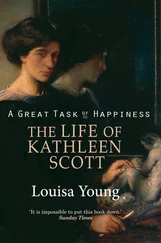And so it was set. Chibuzo sent the two housegirls to invite all the residents of their Rumuola neighbourhood. As it was a Saturday, chances were that many of the residents would be home, lounging around. Evening was still six or seven hours away, more than enough time to do all the inviting, and just enough time to prepare the meal.
As far as the preparations went, he himself set out to the market down the road from their house. There he purchased several hens to be used for the meal. He delivered the hens to Ezinne and Nneka in the kitchen. He had done his duty. Ezinne and Nneka, along with the housegirls, would do the rest.
Before the meal, Chibuzo had come into the kitchen to take a look at the food. Rice filled two large pots almost to the brim. Meat filled the other two pots, the feet of the hens sticking out of the red stew like leafless branches from the ground. Chibuzo inhaled deeply, smiled, patted Ezinne on the back. This was his way of letting her know how pleased he was with the food.
They dressed quickly, Chibuzo in his gold-trimmed agbada, Nneka in her lace blouse and aso oke wrappers. Ezinne wore a straight-cut brocade gown, out of which Nneka insisted she change, because the dress was too plain, she said. But the guests arrived promptly, and Ezinne was spared the change.
The guests strolled into the house dressed more in the fashion of Chibuzo and Nneka — in fancy attire. The housegirls let them in, but it was Ezinne who showed them the way to the table, where Chibuzo and Nneka were seated and eager to regale.
It was a struggle for Ezinne to keep the smile on her face. She wanted nothing more than to escape, to sneak into the bedroom and drift into sleep.
But it was her duty to serve the meal, and so she did, recruiting the help of the housegirls only where the distribution of the plates was concerned.
Now Chibuzo, standing by the door, bids goodbye to the guests. As they file out, he thinks how successful the dinner was. The lids of the pots lie idle on the countertop, and the pots themselves are on the stove, empty, or nearly so — all that remains in them are a few grains of rice and what might amount to a few teaspoons of stew. He thinks of the dinner’s success, but mostly he is impatient for the guests to leave.
Nneka stands at her son-in-law’s side, leaning on the door, ushering the guests out with a smile. It is not the kind of smile that would be expected of her — it is, rather, the kind that would be expected of Ezinne: a forced smile. The reason for this change in Nneka is that she is no longer in the mood to regale. She is now impatient for the guests to leave, for the same reason that Chibuzo is impatient too: because Ezinne has disappeared, and they will have to hurry the guests off if Chibuzo is to stand a chance of making it to Ezinne in time.
When the last guest is gone, Chibuzo leans on the door for a moment, exhales loudly. Nneka pats him swiftly on the shoulder, and just as swiftly, he is off.
In the room, it is dark, but there is a little light coming from the window, so that Chibuzo can just make out the outline of Ezinne’s body on the bed.
‘Hey,’ he says, light-heartedly, as he enters. He swings the door behind him to shut it, but the door does not exactly close. There is a small gap where it does not quite meet the frame. He does not notice this.
He takes a seat on her side of the bed, the side closest to the door. Ezinne moves a little to make room for him. She is lying on her stomach, her arms folded beneath her face. She turns to look at him.
‘Long day,’ he says, like a sigh, moving his hand up and down her back.
‘Yes, very long day,’ she says. ‘I’m tired.’
He laughs a little, awkwardly. She can hear the unease in his laughter.
He gets into bed with her, fully clothed, presses his body hard against hers. His hands make their way to her hips. ‘Yes,’ he says. ‘Makes sense that you’d be tired.’ He pauses. ‘But you can’t be too tired yet,’ he says. ‘There’s one more thing to do.’ He laughs again, softly.
She turns her head away from him, struggles free from him a little. ‘Not now,’ she says. ‘Not tonight.’ She says it boldly, though from the tension in his body she speculates that it is a losing battle.
And of course she is right.
‘Yes, tonight,’ he says. His voice is gravelly and firm.
She closes her eyes, but she can still see him in her mind’s eye. She sees his square jaw. It is taut, stiff. She sees his mouth rounded with determination. She sees his arms underneath the shirt that he is wearing. They are slender, almost scrawny, but she knows that there is strength in them — more strength than their size suggests. She knows this strength for herself, and so she moves a little farther from him. ‘Please, Chibuzo,’ she says. ‘Not tonight.’
‘But we need to try,’ he says. ‘You know, I’m a patient man, but my patience is running out. How do you think this is making me look? A man like me, of my status, and yet with no child to show for it.’ He pauses. Softer, he says, almost pleading, ‘We need a child, not even a son. A girl is fine. We need a child, or this marriage is null.’
With that, he nudges her to turn around. First he holds her face in his hands and places kisses on her forehead, on her cheeks, on the tip of her nose, on her lips. Then his hands make their way to her thighs. He lifts the skirt of her nightgown gently. He strokes her, whispers to her to relax, and she does.
Soon, she hears the unzipping of his trousers. He climbs on top of her. She tenses up, and somehow he feels it. ‘It’s okay,’ he says. ‘It’s okay.’ He strokes her face with one hand.
She relaxes again. ‘Okay,’ she says.
There are tears in her eyes by now, but she blinks them away. She allows him to continue. ‘Okay,’ she says again, but as he enters her, there is the pain, sharp and as wilful as ever before. She moans, but he enters anyway. He thrusts himself into and out of her, and she continues to moan, louder and louder. ‘Please!’ she finally screams, but he doesn’t seem to hear. She tries again. ‘Chibuzo, please stop!’
He thrusts. He thinks of the dibia, her cleansing of Ezinne. He thinks of the dinner, the way the guests ate gratefully, the well-wishes they gave as they left. He feels elated, optimistic. It is dark in the room, but for him there is light.
‘Please,’ she says again.
He hears her moaning, her cries, but he hears it softer than it has been in the past — softer in the midst of all that radiance.
Please .
He takes in all the pleading, but what he hears are gentle sounds of pleasure, not at all sounds of pain. He does not hear the ‘stop’ that comes after the ‘please’. He thrusts, with the desire to gratify, and all the while he is envisioning the future: he sees himself holding his son or his daughter, a baby. He is holding the baby when its umbilical cord stump falls off. He is holding the baby all the days when the baby teethes. And when the child is old enough, he carries the child on his shoulders. He watches as the child climbs the orange and guava trees outside in their backyard, as the child plucks the hibiscus flowers from the bushes in the compound, as the child picks pebbles to play with its catapult. He sees the day the child begins to go to school — the uniform the child wears, green and white, like the colour of the flag. The child is happy. And Chibuzo, imagining the child, is happy too.
Ezinne continues to moan from the pain, moans so loudly that even Nneka hears. By this time, Nneka has distributed the clean-up work amongst the housegirls, and has left them to it. She heads towards Chibuzo and Ezinne’s room, crouches down by the slightly open door and listens in on them. The air in the corridor where she is crouched smells of Ezinne’s stew. Nneka’s clothes, too, carry the scent of the stew. For a moment Nneka thinks that she should go and change out of her clothes, that she should go prepare herself for bed; after all, she is tired, too.
Читать дальше












